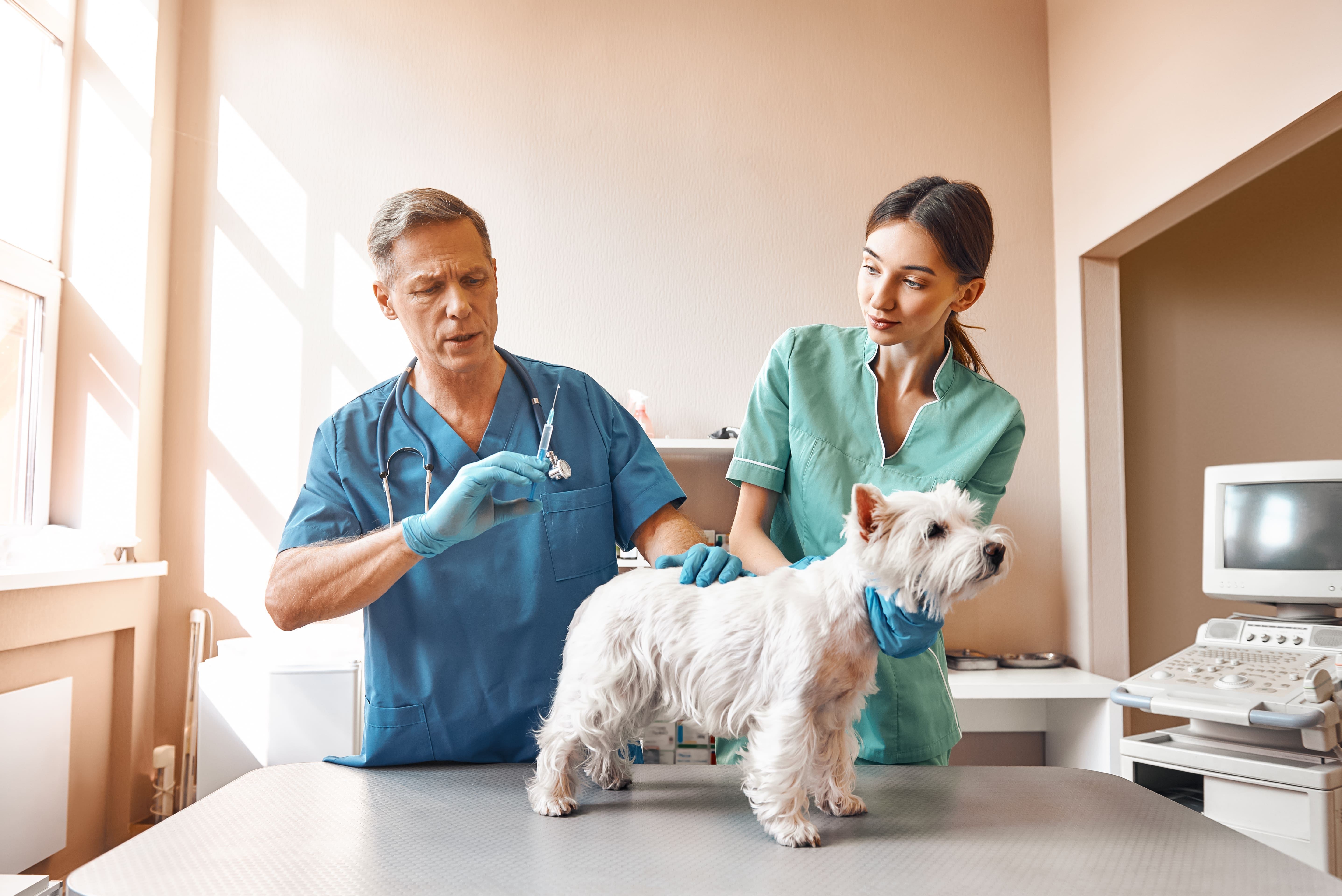
Is It Neglect to Not Take a Dog to the Vet?
April 26, 2023 4:48 pm Leave your thoughtsYou’ve got a lot of responsibilities as a pet parent, and taking your dog to the vet is among the most important of them. Dogs need to visit the vet regularly, just like humans need to go to the doctor for routine checkups. You should also take your dog to the vet if they’re acting strangely or showing symptoms of an illness or injury.
So, how often should you take your dog to the vet? And if you don’t take your dog to the vet, is that considered neglect? Keep reading to learn more about the importance of vet visits and how Rolling Plains Veterinary Corporation can help you keep your furry friends happy and healthy.
Checkups
Even if your dog has had a clean bill of health for years, you should still take them to the vet for a checkup occasionally. Most vets recommend bringing your dog in for a checkup at least once a year. Routine checkups can help you monitor your dog’s health and spot potential problems before they become more serious. Many chronic diseases are easier to treat when you catch them early.
During a checkup, your vet will perform a basic physical exam to ensure your dog is healthy and happy. This exam doesn’t take long, but it can help you monitor your dog’s health to ensure nothing is happening. Your vet can weigh your dog and perform a few basic tests to ensure they’re healthy. If your dog has a chronic condition, your vet may also recommend additional testing during routine checkups.
Vaccinations
If you’ve raised your dog since they were a puppy, you know dogs need several vaccinations. While most vaccinations are administered to puppies, adult dogs still need occasional booster shots to ensure they’re protected. Specifically, your dog should receive a rabies booster and a DHPP booster every three years. If your dog hasn’t had booster shots in a while, you should schedule an appointment with your vet as soon as possible.
Booster shots are crucial because they help protect your pets against diseases that dogs are susceptible to. These boosters are even more important if your dog spends a lot of time around other dogs, whether they love the dog park or frequently stay at doggy daycare facilities.
Illnesses and Injuries
Figuring out what’s wrong with your dog is one of the most challenging parts of being a pet parent. Humans can tell you when they’re in pain or their stomach isn’t feeling right, but it’s up to you to determine what’s going on with your dog based on their behavior. Your dog might have a leg or paw injury if they’re limping, and lethargy and fatigue can be signs of stomach problems and other illnesses. It’s your job to watch for any symptoms your dog may display.
If you notice your dog is acting strangely or having trouble putting weight on a leg, you must take it to the vet as soon as possible. Your dog could have a minor stomach ache or a thorn in their paw, but it could have a life-threatening illness that requires rapid treatment. Vets can use imaging tests and blood work to determine what’s happening with your dog, so you don’t have to guess.
Maintaining a Healthy Diet
It’s not uncommon for dogs to be overweight because they overeat or don’t get enough exercise. However, dogs can experience a wide range of health problems due to being overweight, so it’s your job to help your dog maintain a healthy diet. When you take your dog to the vet for routine checkups, your vet will weigh them and let you know if their weight is becoming a concern.
Fortunately, there are a lot of things you can do as a pet parent to get your dog back down to a healthy weight. Your vet may recommend switching to diet-friendly dog food, or they may recommend feeding your dog less each day. You can also take your dog for walks to make sure they’re getting enough exercise. If you’re not visiting your vet regularly, keeping an eye on your dog’s weight is a lot harder.
Aging Healthily
Dogs change just like humans as they age, meaning your dog needs special care as they age. To make matters even more complicated, certain dog breeds are more susceptible to specific health issues, from back and joint problems to heart issues and diabetes. As your dog ages, you must watch for these issues and work with your vet to make the aging process easier. Your vet may recommend giving your dog supplements, switching to specialty dog food, and taking other steps to make old age easier on your dog.
The age that’s considered “old” can vary based on breed. You should talk to your vet to devise a plan to ensure your dog stays healthy even as they get older.
Take Your Dog to the Vet Today
Keeping your pets healthy isn’t easy, but you owe it to them to do your best. If you want to keep your dog happy and healthy, scheduling routine vet visits is one of the best things you can do. You should also keep an eye out for any symptoms of illnesses and injuries that are common in dogs. Has it been a while since your dog has been to the vet? Give Rolling Plains Veterinary Corporation a call and schedule an appointment.
Categorised in: Dog Care
This post was written by Dr. Marc Phillipot
